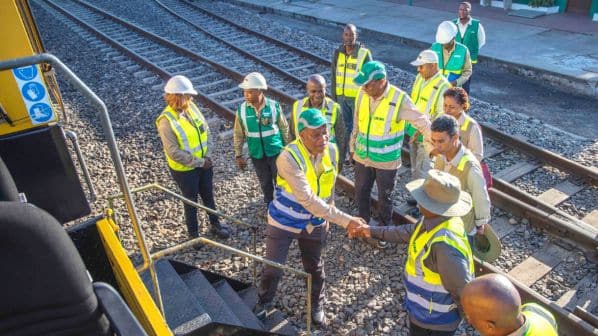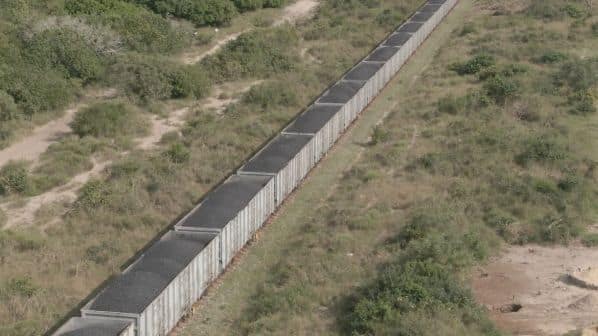LANDLOCKED Zimbabwe has regained access by rail to the port of Beira in neighbouring Mozambique following the reopening of the Mozambique section of the cross-border Machipanda line from Zimbabwe’s second city, Bulawayo.
Originally built in the late 19th century, the line has faced many challenges over the years, including the 1977-1992 civil war in Mozambique, during which the railways were mined, and a failed privatisation attempt in the 2000s. The state of disrepair eventually was such that trains would derail several times a week in spite of being limited to a maximum speed of 60km/h.
Starting in 2019, $US 200m has been spent by funding bodies including the African Development Bank and the South African Development Community on upgrading the 318km section of the line traversing Mozambique, including straightening the alignment considerably.
Progress on the project was hampered by the Covid-19 pandemic as well as delayed imports of rail from Europe and political instability in northern Mozambique. However, in late November, the line was finally officially opened by the presidents of the two countries. Freight and passenger services finally began on December 11.
Freight tonnage is expected to rise to 3.5 million tonnes or more per year, providing crisis-ridden Zimbabwe with a welcome economic boost including a much-needed influx of foreign currency.
The railway will also ease road congestion between the two countries, which has reached breaking point with long tailbacks; an estimated 300-500 lorries per day cross the border at Forbes Border Post in Mutare alone.
“Our roads are being damaged because of increased traffic. With this railway there will be improvements in movement of goods,” Zimbabwe’s ambassador to Mozambique, Mr Victor Matemadanda, told Zimbabwe’s The Herald.
Speaking at the inauguration, Zimbabwe’s president, Mr Emmerson Mnangagwa, indicated that Zimbabwe could upgrade its side of the route as well.
“I came here with several ministers from Zimbabwe, and I was telling them as we were moving on the train that none of them must sleep until they invite me to travel on a similar train in Zimbabwe,” he said. “I want the job done yesterday.”



